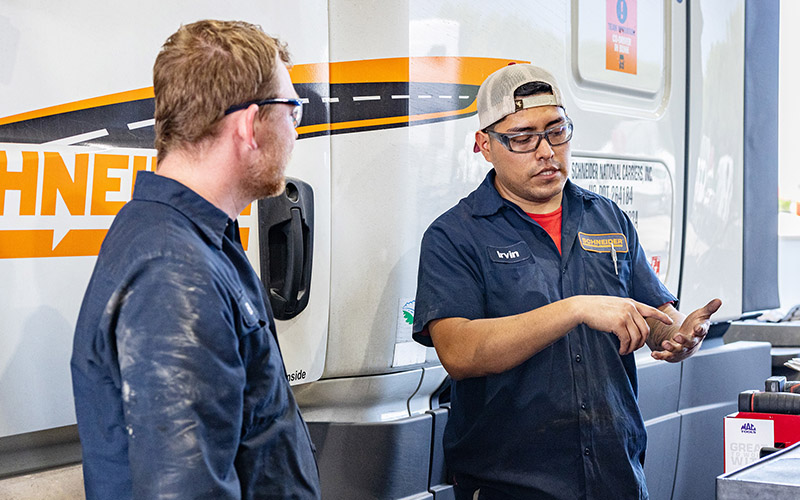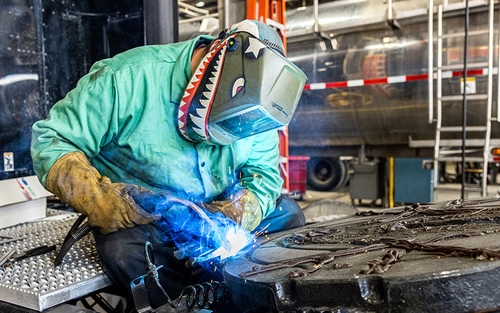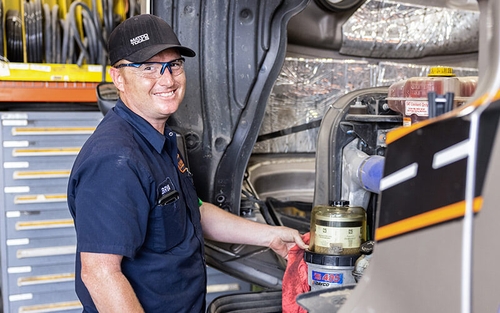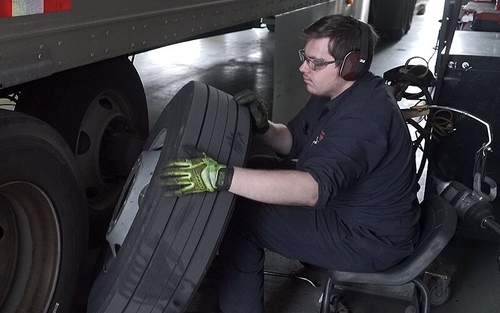Estimated reading time: 2 minutes
Diesel technicians play a vital role in keeping the economy running, contributing to the seamless flow of essential products across the country.
So, how hard is it to become a diesel technician? Continue reading to find out.
How hard is it to become a diesel technician?
Becoming a diesel technician requires more than just good mechanical skills. In a world with constantly evolving technology, diesel technicians need to be:
- Adaptable.
- Tech-savvy.
- Safety oriented.
- Patient.
- Team players.
There are several different paths you can take to gain the necessary skills and knowledge to become a diesel technician. You can:
- Earn an associate degree.
- Get a certificate or technical degree.
- Pursue on-the-job training.
The route you choose may depend on the position you want to pursue and the company you want to work for.
Not all companies require post-secondary training for entry-level roles, for example, but may require it for mid- to senior-level positions.
Is being a diesel technician hard?
Being a diesel technician can be challenging, but it is also a rewarding career for those who are passionate about mechanics and are good at problem-solving.
While the day-to-day responsibilities of a diesel technician vary, their job duties usually include performing:
- Preventative maintenance.
- Equipment inspection.
- Minor and major repairs.
- Express services, like tire and oil changes.
The role can be physically demanding, involving extended periods of standing and working with heavy machinery.
Diesel techs are also exposed to potentially hazardous conditions, such as hot surfaces and electrical wiring. They must have a thorough understanding of proper safety procedures to guarantee a secure environment for everyone in the shop.
What is the hardest part of being a diesel technician?
One of the hardest parts about being a diesel technician is staying updated with the latest technological advancements in the industry they work in. As technology evolves, diesel technicians need to stay current with the latest advancements in things like:
- Diesel engines.
- Emissions systems.
- Electrical components.
- Computerized diagnostics.
Overall, diesel technicians need to be committed to ongoing training and professional development throughout their careers to keep up with this ever-changing technology.






